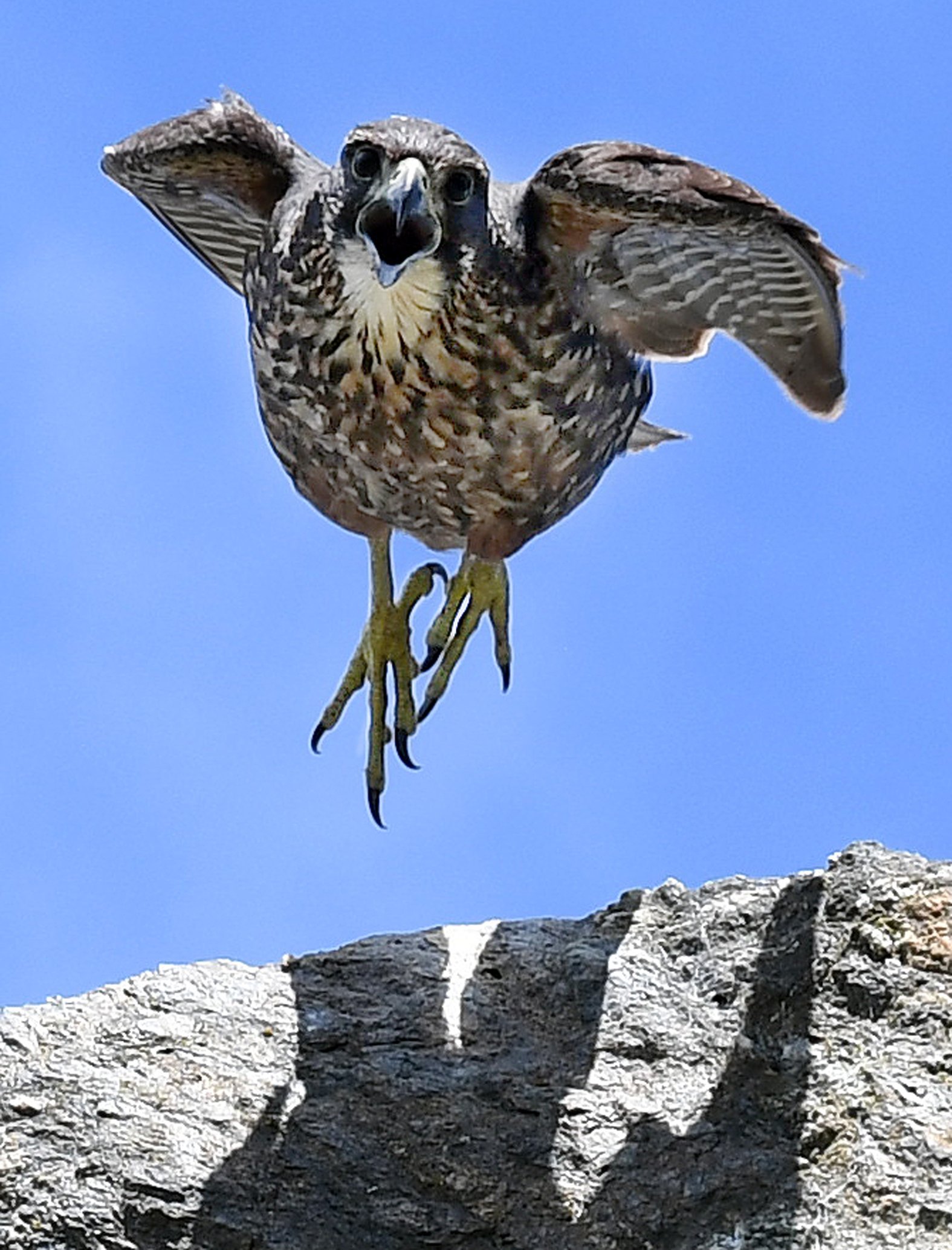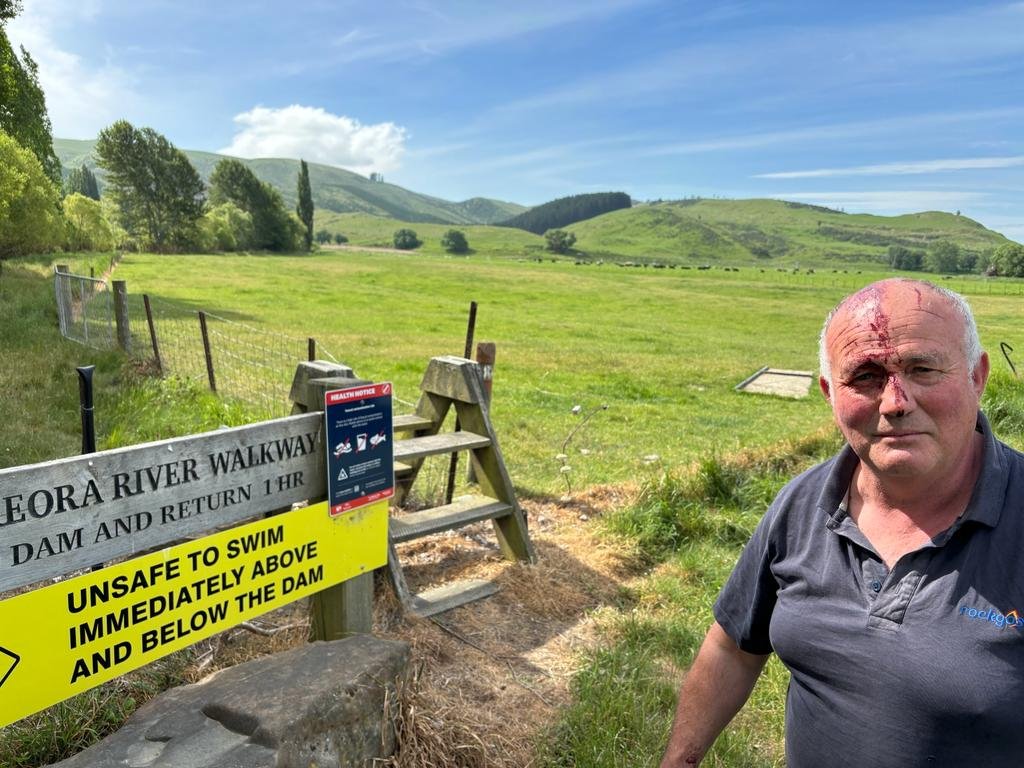
On November 16, Jim Burford was out driving and decided he would stop at the Pareora Gorge, south of Timaru, and visit the dam, as he had not been there for quite some time.
An avid walker, Mr Burford started the 40-minute trek to the dam via the river-walk track at Evans Crossing.
The first thing he noticed was the grass was unusually long.
"I started heading up there and thought the grass was quite high.
"I just thought no-one had been up here for a while, so I carried on walking."
It was not until he got closer to the dam that the falcon made its presence known.
"I saw a bird come down and swoop on me and I thought ‘that was a bit bloody close, wasn’t it?’ and I just carried on.
"Next thing I know, it came down and had another swoop.
"I reached up to touch my head and went ‘oh, where’s my hat?’. I was wearing a floppy hat and it was gone.
"I touched the top of my head and realised I had blood on it and then it came down for a third time and had another go."
The attack left Mr Burford with several deep scratches on his scalp.
Already almost at the dam, he had to walk 30 minutes to get back to his car.
He was concerned he would not make it back because of the amount of blood he was losing.
"I had blood running all down my head and all down my arms, so I grabbed some grass and poked it on my head to try and stop the bleeding.
"I eventually got back to the car and saw a woman coming down the walkway and I thought she was going to freak out when she saw me but luckily she stopped.
"I had a water bottle in the car, so I mopped my head up a bit and took my T-shirt off.
"I saw a farmer on a motorbike, so I called him over and showed him what had happened. He told me about the fact there were falcons nesting.

Mr Burford said the experience had left him a bit more cautious.
"I’ve always been cautious of magpies because I knew they could attack but I never knew anything about falcons.
"To me it was it was just a bird — I don’t know my birds.
"I know what a magpie looks like but I didn’t know what this bird was until I got back and was shown the sign."
It would be good if the sign was a bit more prominent.
"If I had seen it, I probably might not have gone in and especially would have turned back after the first swoop.
"It was maybe a bit small and there were a lot of other signs around which made it hard, but still, it was my fault because I didn’t see it."
New Zealand Raptor Trust chairman Ron Lindsay said falcons were highly territorial.
"When [falcons] aren’t breeding, they’re not as aggressive, but they will attack anything that comes close to their nest and they aren’t mucking around.
"They mean to do you damage and can swoop down at speeds of up to 200kmh.
"It’s exactly the same as a lioness with her cub — it’s the same mentality.
"They’re an apex predator."
He had not heard of many attacks in the Pareora area.
"With falcons you will never see a whole lot of them together in one area because they have their own territory, which is about a 17km radius.
"You will only ever see two birds in there, usually a mum and dad, and if there are more than two, there are some chicks because they don’t tolerate any other birds in their territory.
"When the chicks are youngsters, they get taken out and mum and dad will kill them if they come back to their territory, so each bird has to find their own territory."
The track was closed by the Timaru District Council on November 20 and under the advice of the NZ Raptor Trust will remain closed until the trust advises it is safe to reopen.













